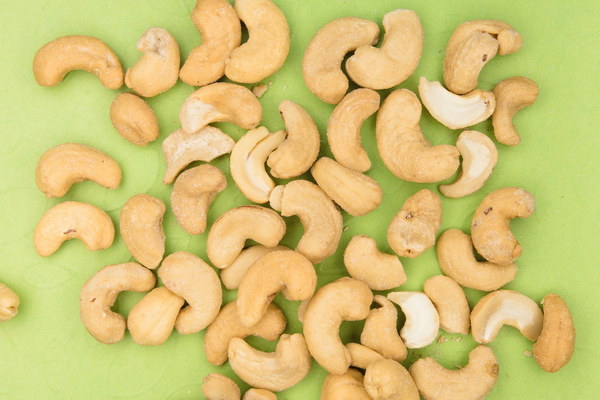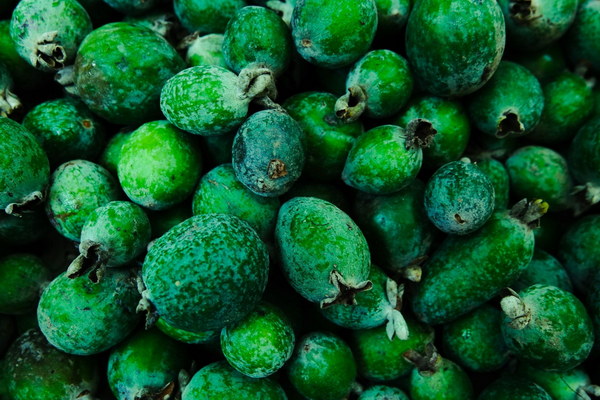Hawthorn Fruit A Traditional Chinese Remedy for Nourishing the Stomach and Enhancing Digestion
Hawthorn Fruit: A Traditional Chinese Remedy for Nourishing the Stomach and Enhancing Digestion
In the vast tapestry of traditional Chinese medicine, the hawthorn fruit, also known as shān zhāo in Chinese, holds a revered place for its supposed ability to nourish the stomach and improve digestion. This small, round, and tart fruit has been used for centuries in various forms, from raw consumption to decoctions and teas, to alleviate a range of gastrointestinal issues. Let's delve into the origins, properties, and benefits of hawthorn fruit in the realm of stomach health.
Origins and Properties of Hawthorn Fruit
The hawthorn fruit, derived from the hawthorn tree, is native to China and has been cultivated for its medicinal properties for over 2,500 years. According to traditional Chinese medicine (TCM), hawthorn fruit is classified as a yin herb, which means it is believed to cool and nourish the body, particularly the stomach and spleen.
In TCM, hawthorn fruit is attributed with the following properties:
1. Harmonizes the Spleen and Stomach: The spleen and stomach are considered the center of transformation in TCM, where food is transformed into energy and nutrients. Hawthorn fruit is believed to help balance these organs, thus aiding in digestion and the absorption of nutrients.
2. Relieves Stomach Pain: It is thought that hawthorn fruit can help alleviate stomachaches and cramps, often associated with poor digestion or indigestion.
3. Reduces Inflammation: TCM practitioners believe that hawthorn fruit can reduce inflammation in the gastrointestinal tract, which can be beneficial for conditions like gastritis or colitis.
4. Promotes Urination: It is also believed to increase urine flow, which can be helpful for those suffering from urinary tract infections or kidney stones.
How Hawthorn Fruit Nourishes the Stomach
The mechanism behind hawthorn fruit's ability to nourish the stomach and improve digestion is not entirely understood, but several potential reasons have been proposed:
1. Aid in Digestive Enzyme Secretion: Hawthorn fruit is thought to stimulate the production of digestive enzymes, which are essential for breaking down food and absorbing nutrients.
2. Improved Blood Circulation: TCM suggests that hawthorn fruit has a beneficial effect on blood circulation, which can help improve the delivery of nutrients to the stomach and intestines, thereby aiding in digestion.
3. Antioxidant Properties: Hawthorn fruit is rich in antioxidants, which can help combat free radicals and reduce oxidative stress in the body, potentially benefiting gastrointestinal health.
Using Hawthorn Fruit for Stomach Health
While hawthorn fruit is widely available in many parts of the world, it is important to consume it in the correct dosage and under the guidance of a healthcare professional or a TCM practitioner, especially if you have pre-existing health conditions or are taking other medications.
Here are some ways to incorporate hawthorn fruit into your diet:
- Raw Consumption: Hawthorn fruits can be eaten raw, but they are quite tart and may not be to everyone's taste.
- Tea: Brewed hawthorn tea is a popular way to enjoy its benefits. Simply steep dried hawthorn fruit in hot water for 5-10 minutes.
- Decoction: You can make a decoction by boiling hawthorn fruit in water and then simmering it for several hours. The resulting liquid can be strained and consumed.
- Powdered Extract: Hawthorn fruit is also available in powdered extract form, which can be added to water, juice, or smoothies.

Conclusion
Hawthorn fruit, a traditional Chinese remedy, has been used for centuries to nourish the stomach and enhance digestion. Its properties, mechanisms, and benefits make it a valuable addition to anyone's diet, especially those looking to improve their gastrointestinal health. However, as with any dietary supplement, it is important to consult with a healthcare professional before incorporating hawthorn fruit into your routine.









